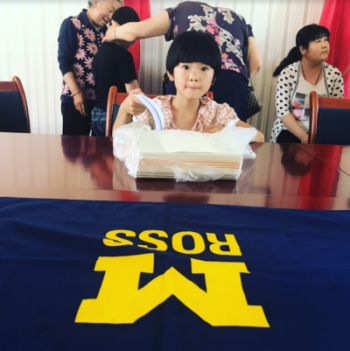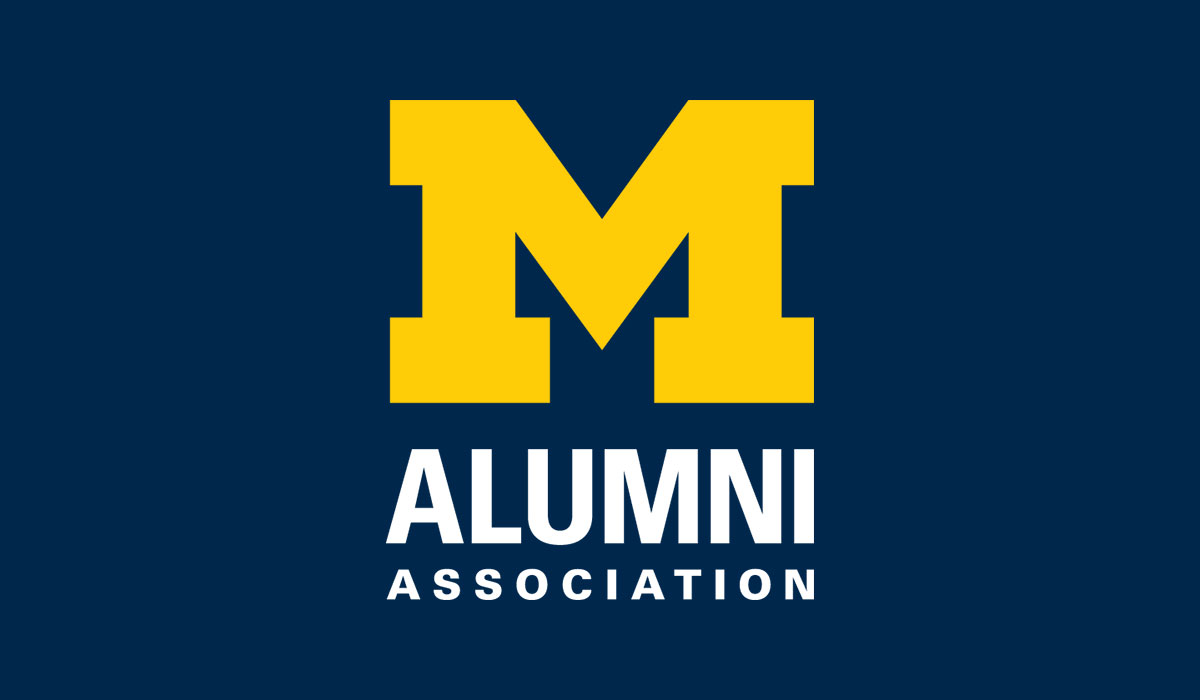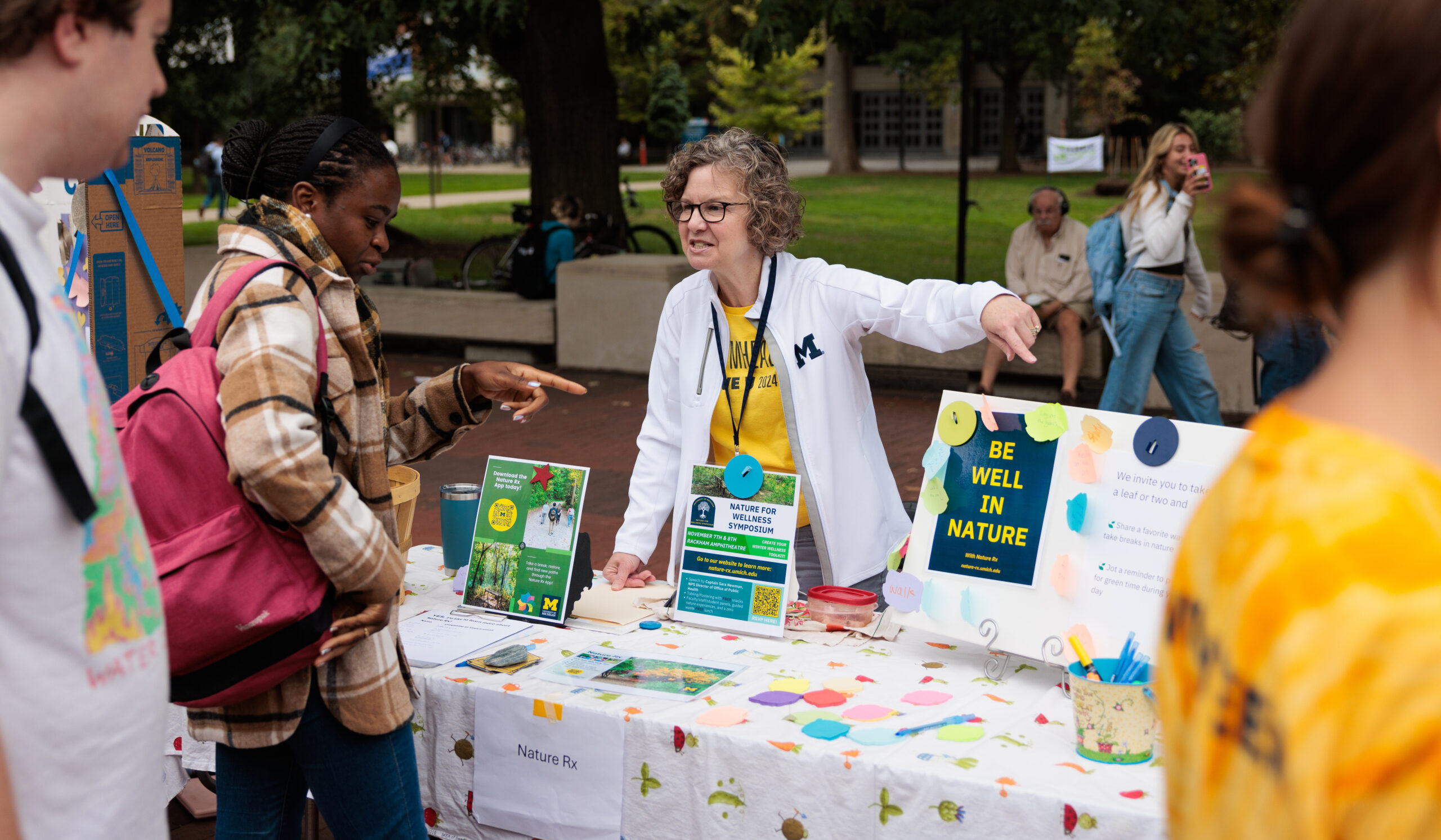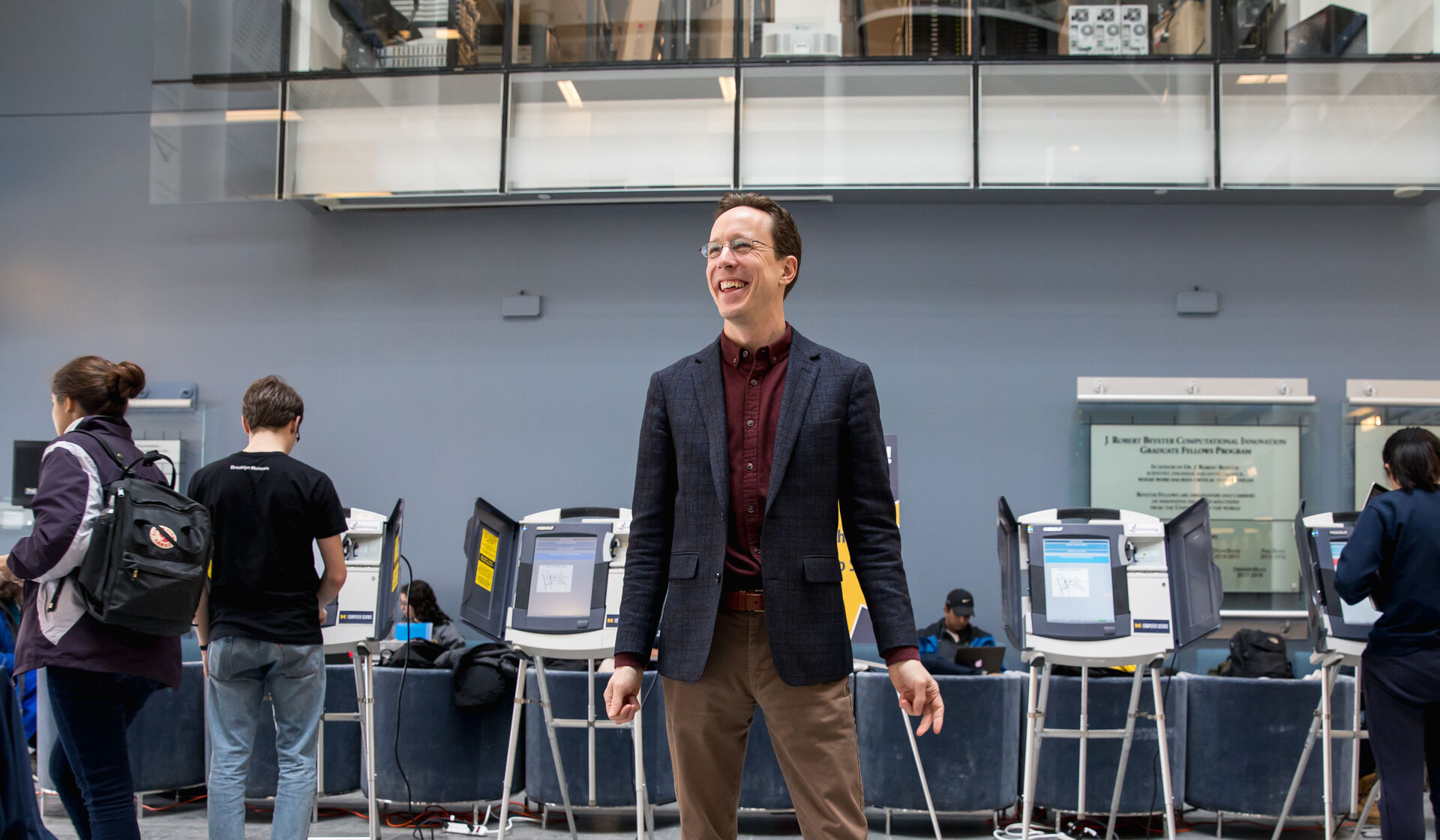China Blue Charity Fund was founded in 2002 by a group of students at the University of Michigan Business School (now Ross School of Business at the University of Michigan) to raise funds for deserving students in rural areas in China. Today, managed by both alumni and current Ross students, the organization strives to help underprivileged children receive the education they deserve. The volunteers of China Blue take great pride in being able to make positive differences in many children’s lives while strengthening a sense of community cohesiveness and giving back collectively to the society in a meaningful way.
Read more about this incredible organization below!

Behind the orange exterior of the Stephen M. Ross School of Business lives an organization that stands apart from the competitive and rigorous nature of the MBA program. At the all-clubs event at beginning of each semester, China Blue Charity Fund, a 501(c)(3) nonprofit dedicated to supporting education in rural China, competes with recruiting and consulting clubs for the attention and limited free time of current Ross MBA students. For this organization, however, it’s not about the numbers; instead, its goal is to recruit members who are passionate about the cause, happy to dedicate their time, and excited to support the mission even after graduation.
China Blue Charity Fund (CBCF) was founded in 2002 by a group of Chinese MBA students with a mission of providing support for education to students of any age whose families do not have a stable source of income or have experienced misfortune. In 15 years, the group has supported over 100 students in the Yunnan, Hunan, Guizhou, and Gansu provinces of China. About 40 of those have received support through their university education, and according to off-campus co-president Richard Ma, MBA’16, they carry on the spirit of helping others through their personal endeavors.
Two distinct teams handle operations for CBCF. The on-campus team at Ross and the off-campus team that operates on the ground in China maintain very different roles within the organization. The on-campus team is China Blue’s backbone, so maintaining a strong leadership team in Michigan from year to year is key to the group’s success. Their focus is all about recruiting members who will continue to be involved with China Blue after graduation.
On-Campus President and current master’s student Chloe Zhu cites the feelings of spirit and community that U-M breeds as a contributing factor to CBCF’s continued success. She says that same spirit also exists at Ross, where students learn how to use business skills to positively impact the world’s problems. “We have a large community of students who are interested in doing good,” Zhu says of the Ross School. “People are willing to dedicate time or money even when both of these resources might be really tight during their student experience.”
The on-campus team consistently encounters challenges, however, when recruiting members, MBA students generally join only two to three clubs each, so it’s difficult for a philanthropic organization like CBCF to attract a large number of students when professional clubs boast experience on résumés. The China Blue leadership members don’t let that bother them though. What the group lacks in quantity, they make up for in quality. “For anyone who is willing to dedicate time to China Blue, it’s usually because there’s some personal drive” says Zhu.
Her own personal drive stems from her upbringing. Zhu says moving around the world with her parents as a child opened her eyes to education disparities between countries and even neighboring cities. Zhu, like all CBCF members, believes education can change lives, but she believes China Blue provides something even more valuable than money. “It’s more about devotion of time, and for kids it’s about showing that there are people who do actually care,” she says. “The China Blue community and alumni actually keep a long-term connection with the students they want to sponsor and I think that is a lot more important than just the money itself.”
While these connections can make a long-lasting impact on the beneficiaries’ lives, the funds themselves carry their own influence by purchasing much needed school supplies for primary school students and paying tuition fees for the older students. CBCF raised over $20,000 in 2016 from generous Michigan alumni, and by the end of the first quarter in 2017, they had already received over $8,000 in donations. A portion of that money came from the two annual ‘charity sells’ hosted by the on-campus team, one during the Lunar New Year and the other around spring commencement. The on-campus team raised just over $700 from their activities surrounding the 2017 graduation season, and while the money is an important piece of the China Blue mission, it’s not the only objective. These events are also a way to keep the China Blue spirit thriving and celebrate Chinese culture through interactive booths and activities like making calligraphy name tents.
The Ross community has proved very supportive of CBCF’s mission. Professors sign Michigan memorabilia that the on-campus team sells at their annual events, and they also film personalized videos for the community sharing the message of the importance of using a business education to positively impact society. Support also comes in the form of other student organizations. CBCF has recently cultivated a partnership with the Greater China Association (GCA) at Ross. GCA brings together Chinese business students and works to promote Chinese culture and business perspectives. According to Zhu, it’s a club that nearly every Chinese student joins, and having a connection with a club membership of this size allows CBCF to tap into resources, identify interested members, and mobilize event volunteers. There is also crossover on the leadership boards, which makes it easier to coordinate events for the Chinese community. In addition to her role as President of CBCF, Zhu sits on the GCA board as social chair.
In the future, the on-campus team would like to focus on increasing the quality of their events and introducing more people to a different side of China than the one they might discuss in class. Off-campus co-president Claire Yang, MBA’17, cites this as the reason that she joined China Blue in the first place: when a friend in CBCF recruited her to help sell souvenirs during one of the Lunar New Year charity sells, she felt a drive to be part of China Blue’s passion to do good. She wanted the rest of the Ross community to know that Chinese students aren’t only interested in academics, but there is an immense capacity and motivation to be involved in philanthropy.
With a relatively small leadership team, Zhu says the group at Ross often feels more like a family than a board. Ma echoes the thought that CBCF is a very collaborative community, saying that he feels touched when so many of their members respond to the call for action when one alum asks for help. At the center of that is Michigan spirit. Ma and Yang agree the culture at Michigan supports endeavors geared towards making a positive impact, and that the university is set up to do so. “ a lot of resources, institutions, clubs, and students that are all aimed at making an impact,” says Ma.
A product of this culture and close-knit community is that the transition from involvement with the on-campus team to the off-campus team ends up being quite natural, according to Yang. Although it varies from year to year, there are usually between 10 and 20 active members in the off-campus group. The leadership board functions very differently than the board on-campus. Whereas recruiting students and increasing visibility is the main objective for Zhu and her fellow board members, Ma and Yang lead the team that manages the thousands of dollars in donations for young students in China.
They do so by connecting with teachers in the various provinces they support. These teachers, who usually have some personal connection to the board members, act as liaisons between CBCF and the beneficiaries. As liaisons, they identify potential beneficiaries and make recommendations to the board. The board carefully reviews every case before granting funding and once beneficiaries receive the funds, the donors begin to make personal connections to the students they support. This is especially true in the Gansu province where CBCF’s one-on-one program matches up one donor with one beneficiary, allowing the donor to support one student throughout all their years of school.
Organized by the off-campus team, regular trips to visit beneficiaries and their families allow donors to create a bond with those they support. The visits are also an opportunity to talk with the families about their lives and struggles so that CBCF can better support them. Along with several other donors, Ma made the trip to Gansu in September to meet with the child he supports as part of the one-on-one program. The group met with more than 20 students and their families and provided some school supplies such as bags and stationary. “To learn the impact CBCF has on their life encourages us to do more,” he says of his experience meeting these families.

While most people would select which student organizations to join after arriving at university, Ma did it backwards. After getting a recommendation for the MBA program at the Ross School of Business and researching the school more thoroughly, he came across China Blue Charity Fund. Determined to attend a school with a strong record of encouraging positive social impact, he applied to Ross. He immediately joined the group upon his acceptance and enrollment. Ma’s involvement with China Blue is fueled by his feelings of gratitude. As a child, he received support from family and friends and uses CBCF as a channel to carry on the spirit of giving.
His experience with nonprofits started when he worked as a journalist prior to attending Ross. Travelling the globe for his stories, Ma witnessed social and economic issues and disparities in parts of China and Africa. In Africa especially, he was impressed with the work that nonprofits were doing to improve the human condition. Organizations like ROCK (Reaching Out with Compassion in Kibera) operate similarly to China Blue, supporting the education of children in impoverished areas and inspired Ma’s involvement with CBCF.
Looking forward, the off-campus team is also hoping to grow. In addition to broadening the reach of CBCF, improving the website, and creating stronger connections on social media, Yang says a priority is to improve leadership operations. A main component of this would be hiring a full-time employee. “Right now we do volunteer our time and money to make the club run. The challenge is we have a lot of ideas and plans but few of us really have the time to put that into action,” Ma explains. Bringing on someone whose work is specially dedicated to this organization could mean greatly improved logistics and a wider reach for this charity.
The outcomes obviously speak for themselves, even without a full-time employee. The spirit of giving and desire to be involved in philanthropy doesn’t only affect members and donors, but the beneficiaries themselves. Although the funding of their education creates many opportunities for these students, the example that CBCF is setting by giving back is just as important. According to Ma, these students already understand that and are even acting on it. “We have very successful students who right now are studying at university, and they carry on the spirit of helping others to make a positive impact.” In addition to their carrying out their mission, it seems like CBCF is also shaping the next generation of philanthropists.
This content was produced by the Office of University Development. If you’d like to learn more about how you can support CBCF and their future efforts, click here to visit their website.





